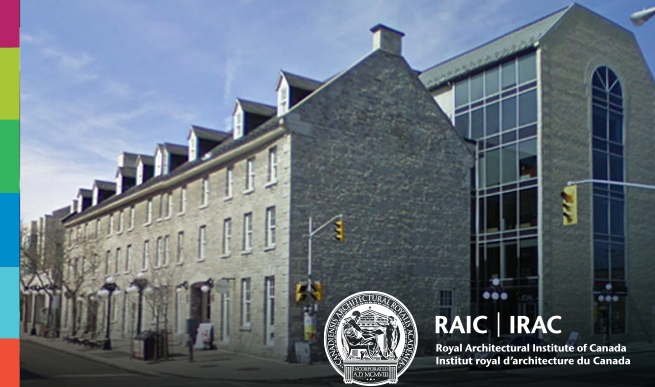![PhD Scholarships Open at Utrecht University [NL]](https://scholaridea.com/wp-content/uploads/2020/06/UtrechtUniversity.jpg)
Postdoc in Machine Learning for Geoscientific Modelling, a Postdoc in data driven discovery of geoscientific models
Are you a researcher in AI or machine learning, with fundamental knowledge in the domain? And eager to apply these methods to solve problems in the geosciences and related fields? We welcome you to apply for a position at the Department of Physical Geography at Utrecht University, the Netherlands.
We are looking for a Postdoc in data driven discovery of geoscientific models. The position is embedded in the Computational Geography group at the Department of Physical Geography. The Computational Geography group focuses on fundamental and application-driven research in spatio-temporal data analysis and simulation modelling with a focus on understanding behavior of physical geographical systems. The group consists of spatial data scientists, simulation modellers with a background in physical geography, and research software engineers. We have strong ties with other domains, leading to groundbreaking research in computational geography, computer science, remote sensing, spatial epidemiology, health geography, natural hazards, hydrology, ecology, and coastal and river processes.
We aim to further strengthen our research at the interface of machine learning and forward process-based simulation modelling in the geosciences. This Postdoc position is a key element in that effort. We are looking for a data scientist with expertise in spatio-temporal statistics, machine learning, applied mathematics, or a related domain, capable of innovating statistical and machine learning methods in computational geography. A background in geography or related field would be an asset but not a requirement as long as you are fascinated and qualified to apply your knowledge to this domain. You will be responsible for fundamental research in the project ‘Data driven discovery of time transfer functions for hybrid simulation modelling’. This includes the design and implementation of advanced Machine Learning models applied to Big Data (remote sensing observations, hydrological models) to enhance non-machine learning models. You will be uniquely positioned to execute this project in close cooperation with our spatial data scientists, research software engineers in our team working on the project, as well as domain specialist in hydrology, ecology, and related domains. You will have the opportunity to execute your own research, write peer reviewed articles, and attend conferences. Furthermore, following the FAIR principles (Findability, Accessibility, Interoperability, and Reusability) you will be encouraged to freely and broadly share your contribution (e.g., as part of a toolbox).
Qualifications
We are looking for a candidate with:
- a PhD degree in a relevant area, such as statistics, machine learning, or applied mathematics;
- a passion for machine learning, and an interest in cooperating with researchers from geosciences and related domains;
- capability of translating machine learning methods to software in cooperation with research software engineers in the team;
- a clear research vision to complement ours;
- good communication skills;
- demonstrable English language proficiency. We require a qualification English at C1 level (CEFR or comparable to level 3 of the Lecturer Assessment Grid) or you are prepared to obtain this level by training.
Offer
We offer a temporary position (0.8 – 1.0 FTE) for two years in an international working environment. The gross salary – depending on previous qualifications and experience – ranges between €2,846 and €3,691 (scale 10.0 – 10.6 according to the Collective Labour Agreement Dutch Universities) per month for a full-time employment. Salaries are supplemented with a holiday bonus of 8% and a year-end bonus of 8.3% per year. In addition, Utrecht University offers excellent secondary conditions, including an attractive retirement scheme, (partly paid) parental leave and flexible employment conditions external link (multiple choice model). More information about working at Utrecht University external linkcan be found here.
About the organisation
A better future for everyone. This ambition motivates our scientists in executing their leading research and inspiring teaching. At Utrecht University external link, the various disciplines collaborate intensively towards major societal themes. Our focus is on Dynamics of Youth, Institutions for Open Societies, Life Sciences and Sustainability.
Utrecht University’s Faculty of Geosciences external linkstudies the Earth: from the Earth’s core to its surface, including man’s spatial and material utilisation of the Earth – always with a focus on sustainability and innovation. With 3,400 students (BSc and MSc) and 720 staff, the faculty is a strong and challenging organisation. The Faculty of Geosciences is organised in four Departments: Earth Sciences, Human Geography & Spatial Planning, Physical Geography, and Sustainable Development.
The Department of Physical Geography excels in research and education on BSc, MSc and PhD level. Our research focuses on processes, patterns and dynamics of the Earth’s continental and coastal systems, and on the interaction between these processes. This knowledge is essential for the sustainable management of our planet and to guarantee the availability of resources for the next generations.
Additional information
For more information about this position, please contact: Prof. dr. Derek Karssenberg external link, via d.karssenberg@uu.nl.
Apply
Everyone deserves to feel at home at our university. We welcome employees with a wide variety of backgrounds and perspectives. To apply, please send your curriculum vitae, including a letter of motivation via the ‘apply’ button below. Please include a research statement describing the research you intend to develop in the project (max. 1 page).
The job interviews for this position will be held on May 9 or 11, 2022, in the afternoon.
The application deadline is 24 April 2022.
![Postdoctoral and Research Opportunities at McGill University [CA]](https://scholaridea.com/wp-content/uploads/2020/06/mcgill-university-30-may-2019-768x402.jpg)

